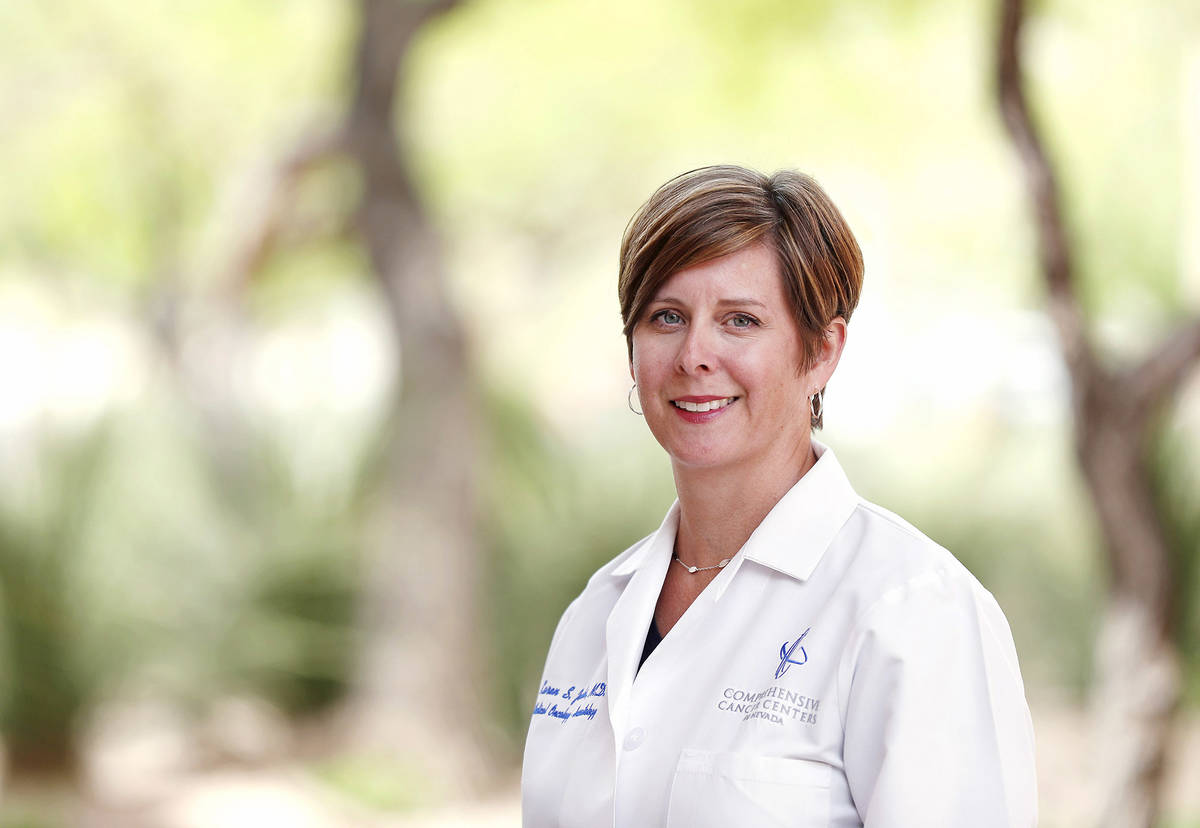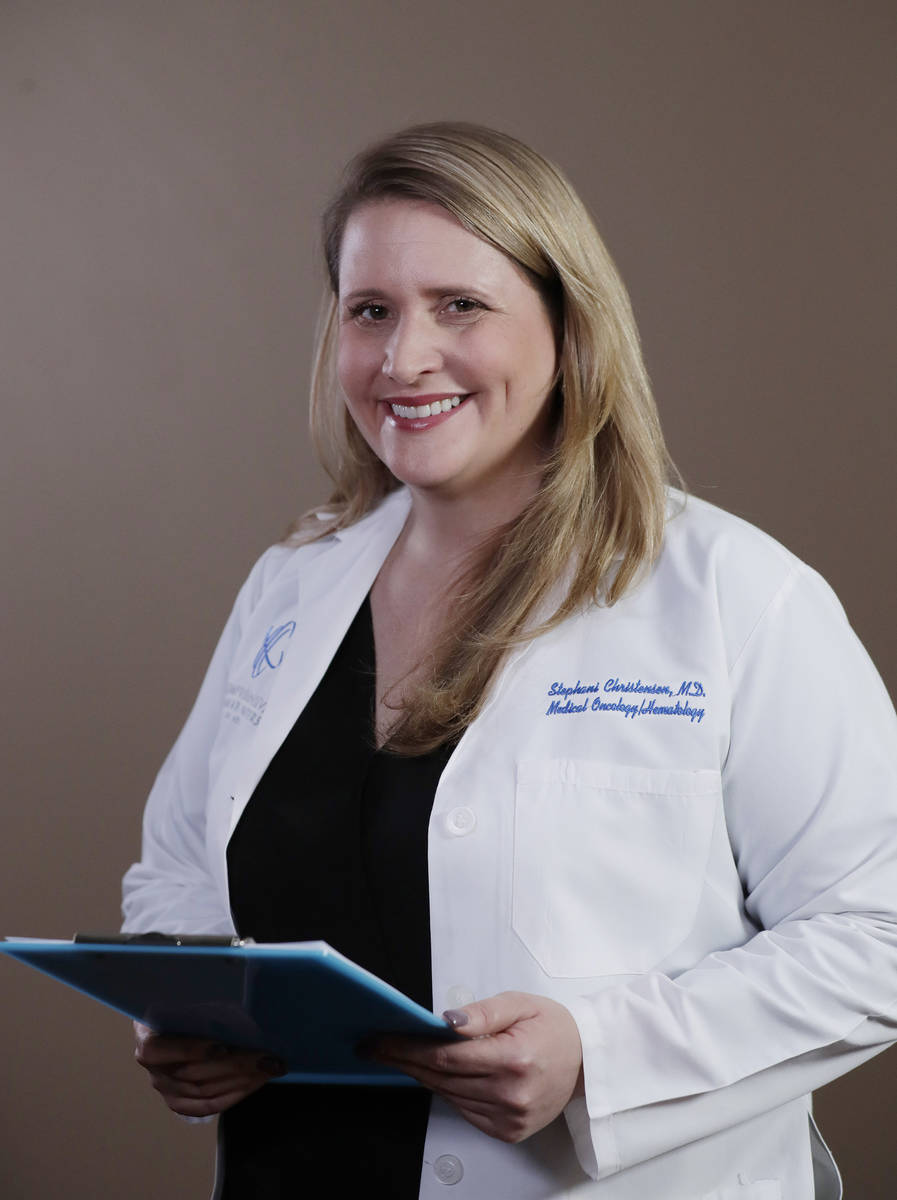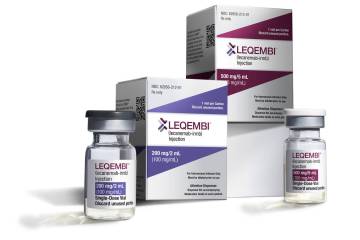Las Vegas clinical trial offered to breast cancer patients
Comprehensive Cancer Centers of Nevada is offering patients in the early stages of triple-negative breast cancer the chance to take part in a clinical trial that is testing the effectiveness of immunotherapy with the standard cycles of chemotherapy.
The study is sponsored by the National Surgical Adjuvant Breast and Bowel Project Foundation, a nonprofit supported by the National Cancer Institute, which has been conducting breast-cancer research for several decades. The clinical trial, NSABP B-59, is taking place at medical facilities across North America and Europe with approximately 1,520 patients expected to participate.
The body’s immune system performs incredible work, continually fighting off invaders such as viruses and bacteria that can lead to illness. But cancer cells can adapt in a way that helps them evade the intricate immune response.
Some of the latest immunotherapy medications are trying to boost or rework the body’s immune system so that it can recognize and destroy these evasive cancer cells.
Last year, the FDA approved an immunotherapy drug called atezolizumab for advanced, metastatic triple-negative breast cancer as a palliative treatment to help improve quality of life. But the NSABP B-59 study will be looking at the drug for curative effects in the early stages of the disease, said Stephani Christensen, Comprehensive Cancer Centers of Nevada medical oncologist and principal investigator for the local clinical trial.
The goal is to determine whether the combination of atezolizumab and chemotherapy aids in the reduction of tumor size before surgery and decreases the chance of the cancer recurring, she said.
“Triple-negative patients have a higher-risk disease, so they’re more likely to relapse, and so what everyone in the breast cancer community is trying to do is say, ‘What can we do to improve that?’” Christensen said.
Atezolizumab works by targeting a protein called PD-L1. The protein is located on the surface of cells and typically helps the immune system determine whether a cell is normal or abnormal. But cancer cells are sometimes able to use the protein as a kind of shield to elude the immune system’s typical checkpoint process.
“PD-L1 on cancer cells can bind to our immune system and evade it. It’s almost like a force field they have so that your immune system can’t attack the cancer cells. And what atezolizumab is, it basically binds to the PD-L1 and breaks that down so your own immune system can attack,” Christensen said.
As part of the study, all participants will receive chemotherapy over several weeks to help reduce the size of any tumors, followed by surgery to remove the remaining cancerous tissue, Christensen said. During the course of the pre-surgery chemotherapy, however, participants also will receive either doses of the immunotherapy drug or a placebo. Rounds of immunotherapy or a placebo will continue after surgery too.
Patients who sign up for the clinical trial will be medically screened and have to test positive for the existence of PD-L1 protein on tumor cells. They will be randomly placed in either the immunotherapy or placebo group.
Christensen noted that the side effects of immunotherapy can vary but usually reflect those of an “overactive immune system,” such as inflammation of the liver or lungs, and colitis. It also can affect parts of the endocrine system such as the pituitary gland and pancreas.
One of the misgivings patients often have about participating in a clinical trial is that they will not be receiving the standard therapy, said Karen Jacks, Comprehensive Cancer Centers of Nevada medical oncologist and treating physician for the study. She emphasized that the only difference is the addition of either atezolizumab or a placebo in the pre- and post-surgery treatments.
“There is going to be active treatment, and specifically to this clinical trial, standard-of-care chemotherapy,” Jacks said.
While triple-negative breast cancer makes up about 10 to 20 percent of all breast cancers, it is more aggressive than other forms of the disease, more likely to recur, and there are fewer treatments to address it, Jacks said. That’s why studying the effects of some of the newest therapies is crucial.
“Having nothing other than chemotherapy in our pockets isn’t adequate enough. … My hope is — and I’m sure for all of us it is — that we actually get that curative intent, that we don’t have the increased-risk relapse and progression, that we actually have a better overall outcome for all these women and less risk of developing progression or it returning.”
Being able to offer the clinical trial in the Las Vegas Valley, she added, is a significant benefit to her patients. Not only do they have the chance to participate in a study that could benefit themselves and others, they are able to stay close to home.
“(It means) not having the obligation to travel when you’re not feeling well, when you’re concerned about what’s going to happen with your health and response. Especially right now, quite frankly, with everything from a financial perspective and the safety of travel,” Jacks said.























